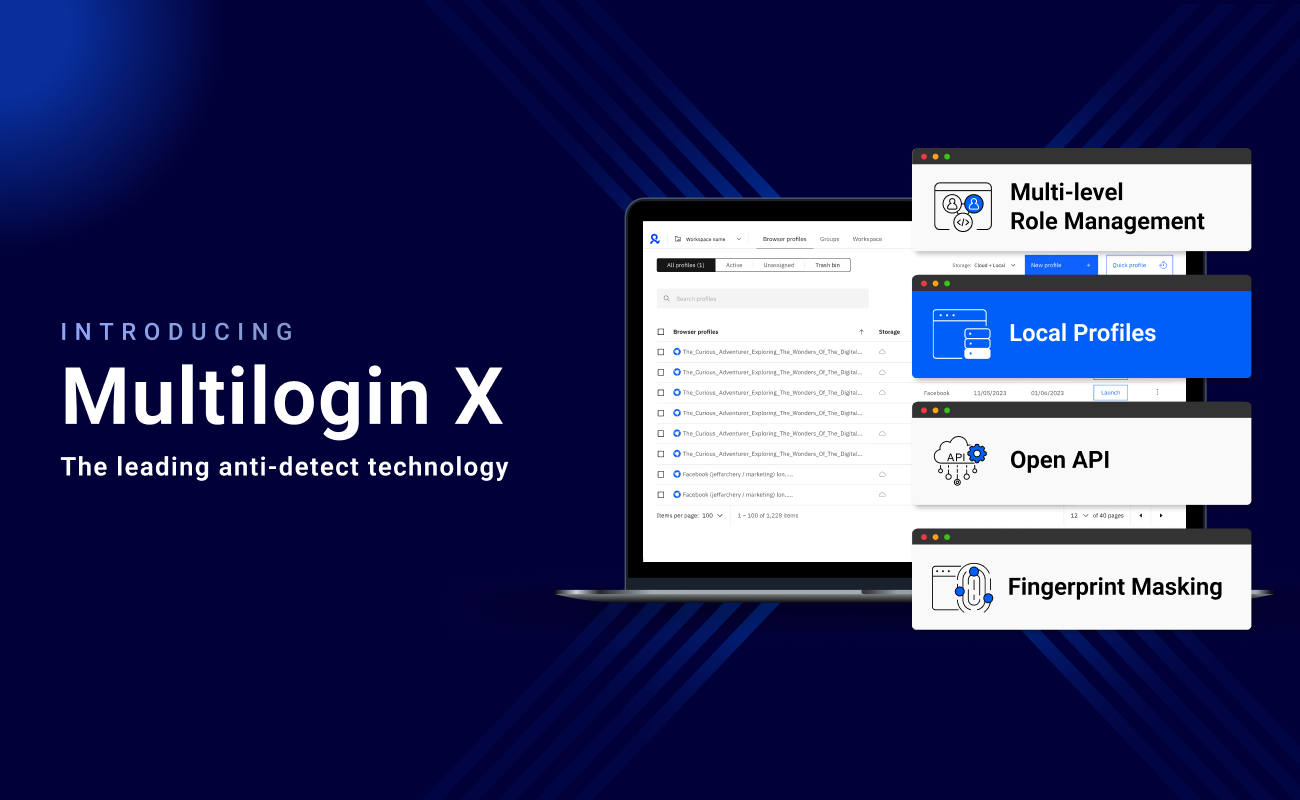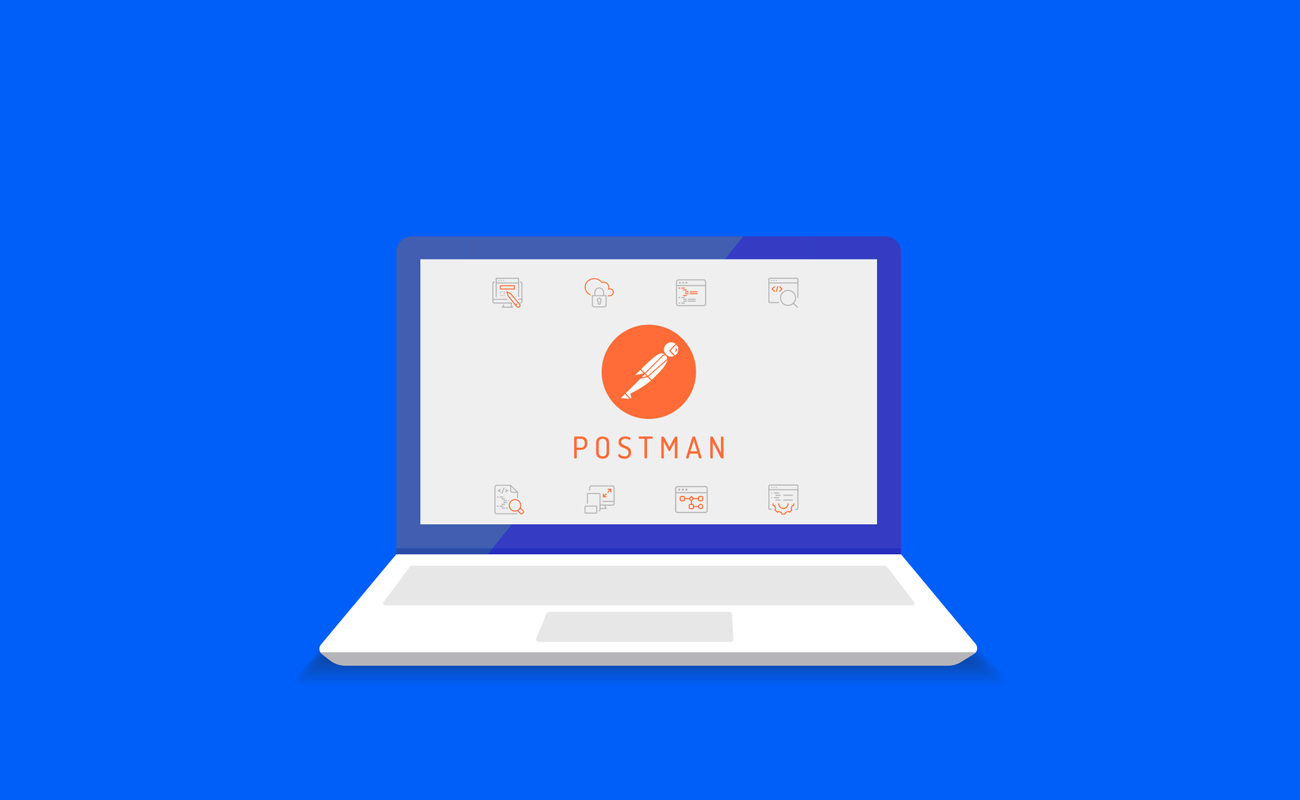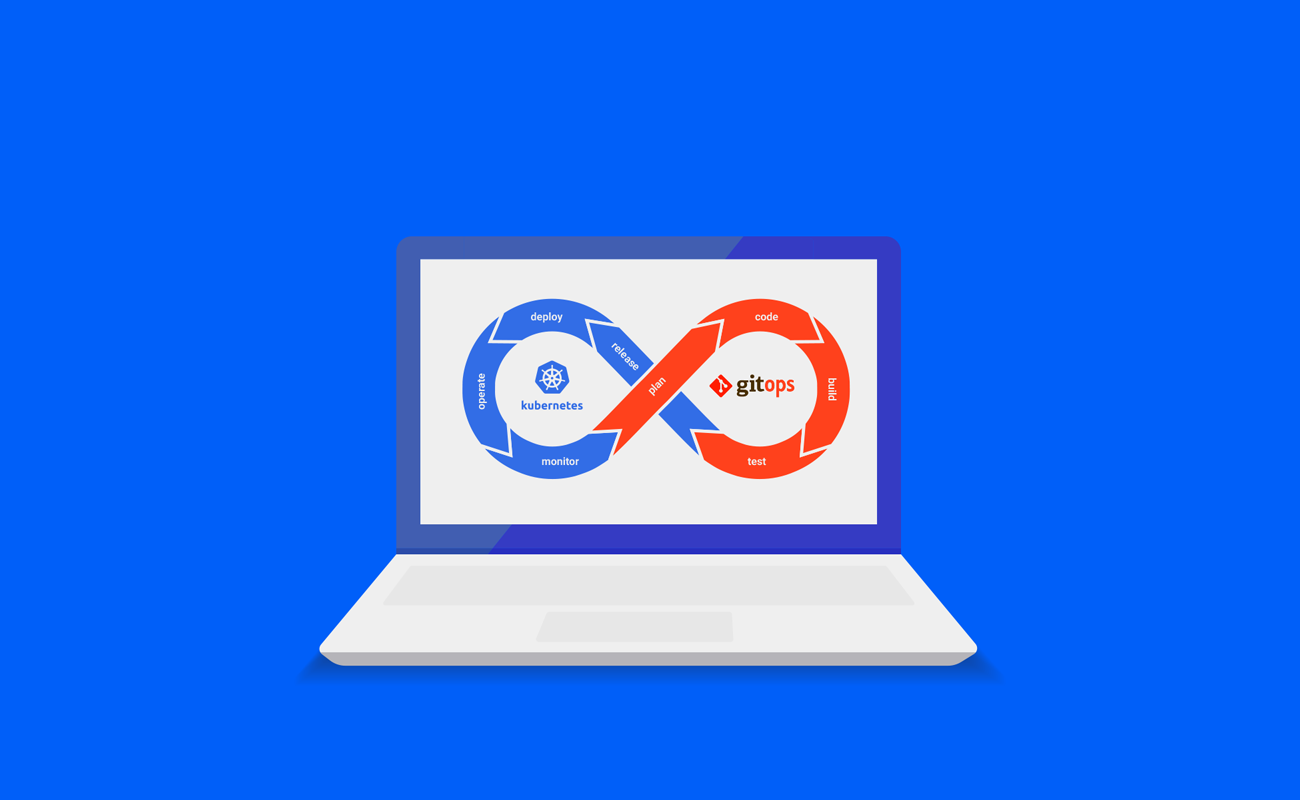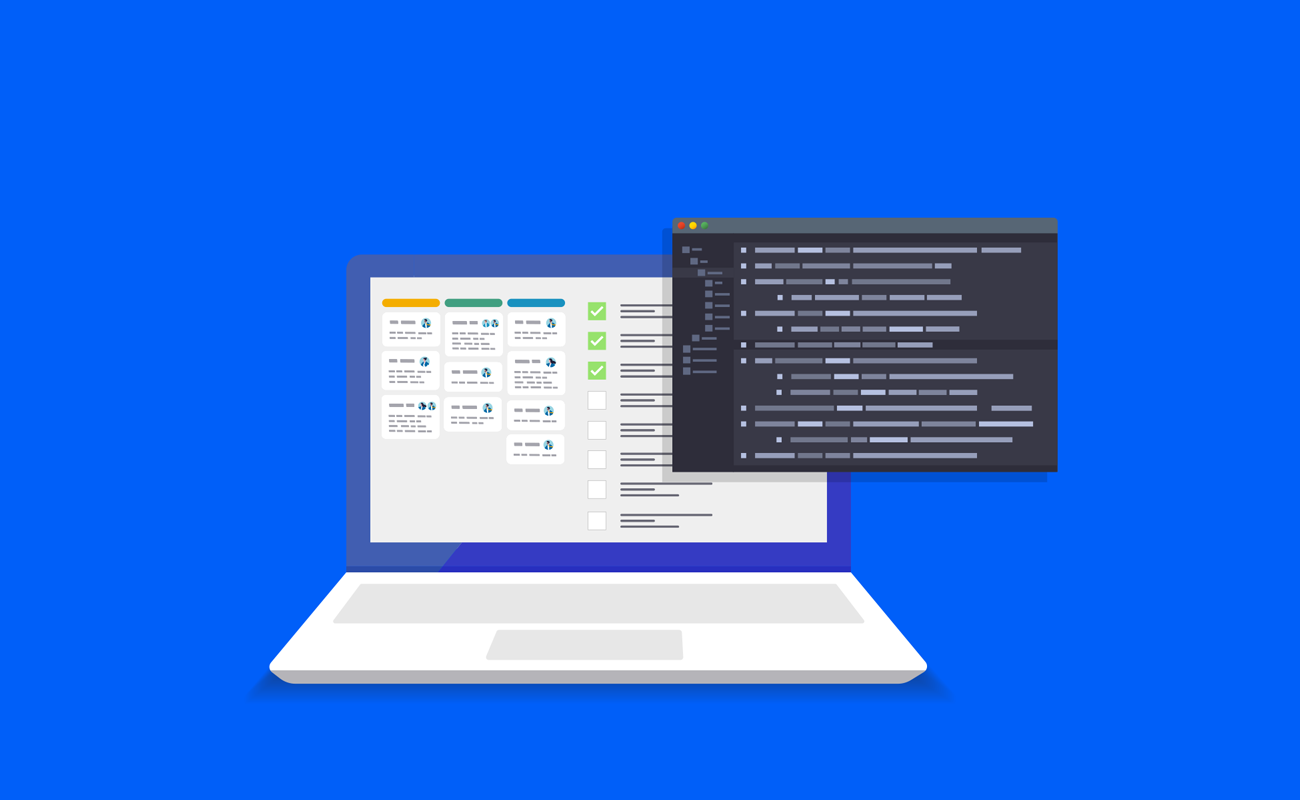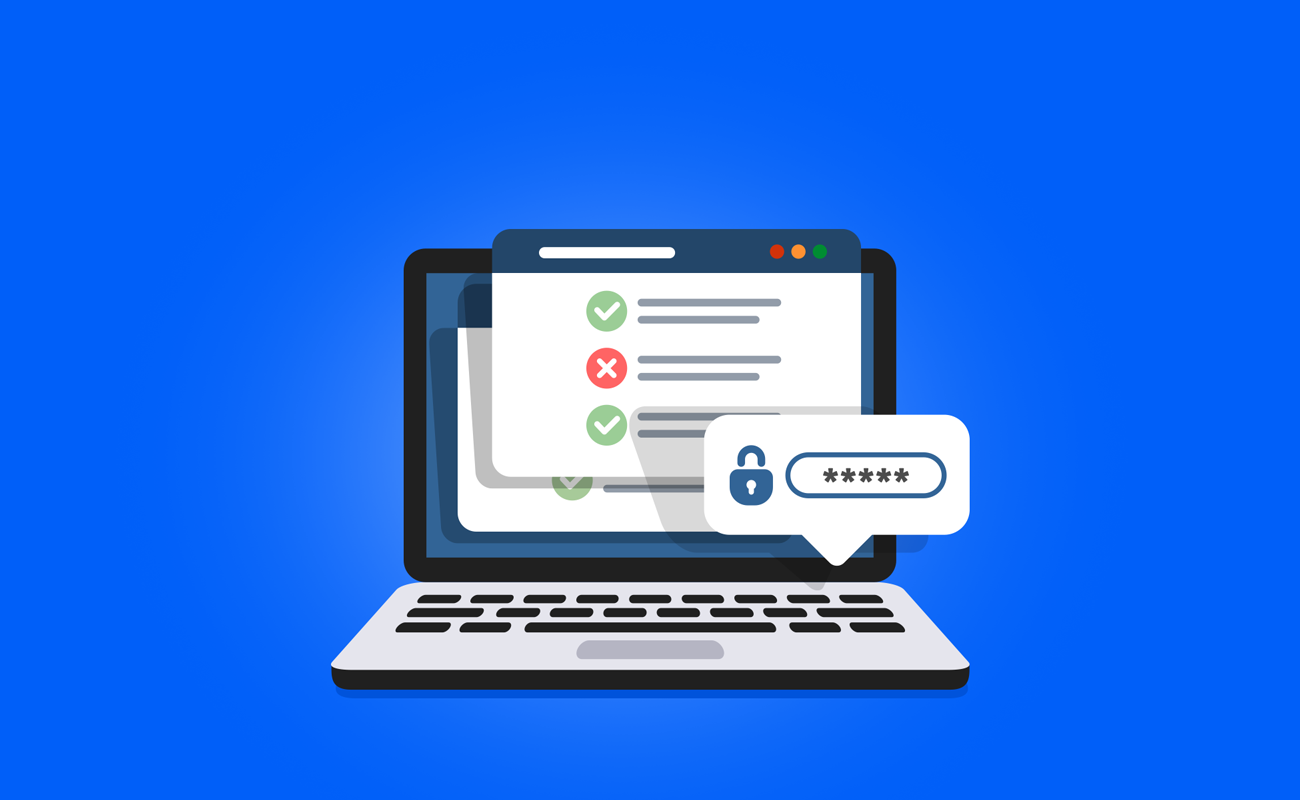
Best browser privacy: a guide to finding the right one
MAY 11, 2023
In today's ever-connected digital world, privacy is the new luxury. With all eyes on our online activities, it's high time we regain control and stay ahead of the data-hungry trackers. Enter antidetect browsers – the digital superheroes that help us reclaim our online privacy and enjoy a more secure browsing experience.
Get ready to dive into this guide that unravels the secrets of browser privacy and helps you find the perfect browser to safeguard your data and keep those prying eyes at bay.
What is browser privacy, and why is it important?
Browser privacy revolves around protecting your personal information while you browse the internet. With growing concerns about data breaches, identity theft, and intrusive targeted advertising, maintaining privacy has become a priority for many users. A secure browser can prevent unauthorized access to your data and ensure a safer browsing experience.
How websites collect data
Websites and third-party trackers collect data from users in order to understand their behavior, provide personalized content, and show targeted ads. Here are some methods they use.
Cookies: Cookies are tiny text files that websites save on your device. They store information about your site visits and preferences. Cookies help websites remember you and make your experience smoother. But they can also track your browsing activity across multiple sites.
Web beacons: These are small, invisible images embedded in websites and emails. When you load a page or open an email, the web beacon returns information to the server. It can reveal your IP address, browser type, and when you visited the site or opened the email.
JavaScript: JavaScript is a programming language that runs in your browser. Websites use it to make their pages interactive and dynamic. But JavaScript can also collect data about your device, like screen resolution, installed fonts, and location.
Browser fingerprinting: This technique identifies users based on their unique browser and device settings. Trackers gather information about your device and create a "fingerprint". This fingerprint helps them recognize and track you across different websites and sessions.
Social media buttons: When you see "Like" or "Share" buttons on a website, they can collect data about your visits. Social media platforms use this information to show you personalized ads.
Third-party tracking scripts: Some websites include scripts from other companies, like ad networks or analytics services. These scripts can collect data about your browsing behavior and share it with a third party.
Location data: Websites can ask for your location to provide localized content or services. If you grant access, they can collect your location data, often with high accuracy.
Browser fingerprinting and its privacy implications
The characteristics of browser fingerprinting include the user's screen resolution, operating system, installed fonts, browser plugins, and time zone.
By collecting and analyzing this information, trackers can create a unique profile or "fingerprint" for each user. This provides recognition and tracking of users across multiple websites and browsing sessions. Note that it does not rely on cookies or other traditional tracking methods.
The implications of browser fingerprinting on privacy are concerning for several reasons. First, it's a highly intrusive form of tracking that operates covertly, making it difficult for users to detect and avoid. Cookies can be quickly cleared or blocked. But browser fingerprints are inherently tied to the device and browser used, making them challenging to eliminate or modify.
Privacy-enhancing measures such as deleting cookies or using a VPN cannot always protect a user from browser fingerprint tracking.
Browser fingerprinting can create extensive user profiles. These profiles can be used for targeted advertising, price discrimination, or even more invasive purposes. Examples include surveillance and identity theft.
Trackers can correlate browsing behavior with other personal information to understand an individual's preferences, habits, and identity. However, this poses a significant risk to user privacy, as it enables the potential misuse of personal data and the violation of privacy rights.
Finally, browser fingerprinting undermines the fundamental principles of user consent and control in the digital realm. Many users are unaware that their browser fingerprints are collected for tracking purposes. They lack the tools and knowledge to prevent it.
This lack of transparency and choice further erodes user trust in the digital ecosystem and makes it harder for individuals to control their personal information.
Antidetect browsers: your privacy shield
Antidetect browsers are designed to minimize data collection and protect your privacy while browsing the web. They achieve this by employing various techniques, such as built-in ad blockers, security features, and tracking protection. In addition, these browsers also utilize the Tor network to enhance anonymity and prevent websites from obtaining your IP address.
Benefits of using an antidetect browser
Enhanced anonymity: Antidetect browsers protect identities, ensuring discreet browsing and work processes.
Reduced fingerprinting: These browsers minimize the uniqueness of browser fingerprints, making it harder for trackers to identify and track users, thus providing greater privacy.
Faster automation: Built-in ad and tracker blocking speeds up web scraping and automation tasks by reducing the data that needs to be processed.
Improved security: Antidetect browsers have built-in security features, safeguarding online businesses and automation processes from malicious websites and threats.
Cost savings: By blocking ads and trackers, antidetect tools help reduce data usage and bandwidth consumption, resulting in cost savings for online businesses.
Ethical practices: Using antidetect solutions promotes privacy and security-conscious development, contributing to a more responsible digital ecosystem.
Other privacy-enhancing browsers
There are other browsers that prioritize privacy but may not be fully antidetect. They offer features that help protect user data and minimize tracking. Examples of such browsers include Mozilla Firefox, Safari, and Microsoft Edge.
Mozilla Firefox
Firefox is an open-source browser that offers various privacy features to protect user data and minimize tracking.
With options for enhanced tracking protection, private browsing mode, and customizable privacy settings, Firefox allows users to tailor their browsing experience to their preferences.
Benefits
Open-source code ensures transparency and community-driven improvements.
Enhanced tracking protection blocks different types of trackers.
After each session, private browsing mode automatically erases browsing history, search history, and cookies.
Offers a wide range of privacy-enhancing extensions for customization.
Limitations
It may not provide the same level of anonymity as dedicated antidetect browsers.
Some privacy-enhancing extensions may impact browsing performance.
Safari
Safari reduces cross-site tracking and protects user data through built-in features like Intelligent Tracking Prevention, secure password management, and Privacy Reports.
These features help maintain user privacy by limiting the access of third-party trackers to browsing data, ensuring vital password hygiene, and offering insight into tracking attempts.
Benefits
Intelligent Tracking Prevention leverages the power of machine learning algorithms to identify and effectively block tracking attempts.
A secure Password Manager generates, stores, and auto-fills solid and unique passwords for each website visited.
Privacy Report shows the number of trackers blocked during browsing sessions.
Limitations
Available only on Apple devices.
It may not offer the same customization or extension support level as other browsers like Firefox.
Microsoft Edge
Microsoft Edge focuses on user privacy with built-in features like Tracking Prevention, InPrivate browsing, and SmartScreen. These features protect user data by blocking various trackers, ensuring that browsing history and cookies are not saved, and protecting against phishing attacks and malware.
Benefits
Three levels of tracking prevention to cater to different user preferences.
InPrivate browsing mode prevents storing browsing history, cookies, and temporary files.
SmartScreen feature helps block access to malicious websites.
Limitations
It may not be as well-suited for users seeking the highest privacy and anonymity provided by dedicated antidetect browsers.
Edge's extension ecosystem may be less comprehensive than other browsers like Firefox.
Browser extensions and add-ons for privacy
Browser extensions can be very useful for protecting privacy. They offer additional security compared to what is already in the browser. These extensions often focus on blocking trackers, encrypting data, and preventing fingerprinting.
Popular privacy-focused extensions
uBlock Origin: A powerful ad-blocking and tracking protection extension that prevents third-party trackers from collecting your data.
Privacy Badger: Developed by the Electronic Frontier Foundation (EFF), Privacy Badger automatically blocks trackers and ensures a private browsing experience.
HTTPS Everywhere: Created by EFF to protect your data, this extension forces websites to use secure HTTPS connections whenever possible. This encrypts your data and prevents eavesdropping.
These extensions can complement antidetect browsers or enhance privacy in other browsers by offering additional layers of protection.
Selecting the best privacy browser
When it comes to selecting the best privacy browser, there are several key parameters to consider. Take a look below to make an informed decision that will meet your needs.
Evaluate your privacy needs: Determine the level of privacy you require for browsing activities, considering factors like the sensitivity of the information you handle and your tolerance for being tracked by advertisers and other third parties.
Research available browsers: Familiarize yourself with the range of tools that prioritize privacy, including dedicated antidetect solutions and regular browsers like Firefox, Safari, and Microsoft Edge that offer privacy-enhancing features.
Open-source vs. proprietary: Opt for open-source browsers allowing community-driven improvements and transparent security. Proprietary browsers may not offer the same level of scrutiny or user control over privacy features.
Built-in privacy features: Look for browsers with built-in privacy features such as tracker blocking, fingerprinting protection, and secure browsing modes. These features can offer a more private browsing experience without requiring additional extensions or customization.
Extension support: Choose browsers that support privacy-focused extensions, which can further enhance your browsing privacy. Popular options include uBlock Origin, Privacy Badger, and HTTPS Everywhere.
Regular updates: Ensure the browser you select receives updates to address security vulnerabilities and maintain optimal privacy features. Outdated browsers can expose you to potential security risks.
User experience: Consider the user interface and ease of use when selecting a privacy browser. A browser that is difficult to navigate or configure may discourage consistent use of privacy features.
Cross-platform compatibility: Select a browser compatible with the devices and operating systems you use regularly. This ensures a consistent privacy experience across all platforms.
Browser performance: Privacy features should not significantly impact the browser's performance. Choose a browser that balances privacy protection and a smooth browsing experience.
Community reputation: Research the browser's reputation and its development team within the privacy community. Trustworthy developers and positive user reviews can indicate a reliable privacy-focused browser.
Customization options: Look for browsers that allow you to customize privacy settings according to your preferences, giving you greater control over your browsing experience.
VPN compatibility: Consider selecting a browser compatible with VPN services, as using a VPN in conjunction with a privacy-focused browser can further enhance your online anonymity.
Test multiple browsers: Experiment with different privacy browsers to determine which best meets your needs and preferences. This hands-on approach can help you make a more informed decision about the best browser for your privacy requirements.
Considering these tips, you can better evaluate and select the best privacy-focused browser that aligns with your requirements and priorities, ensuring a more secure online experience.
